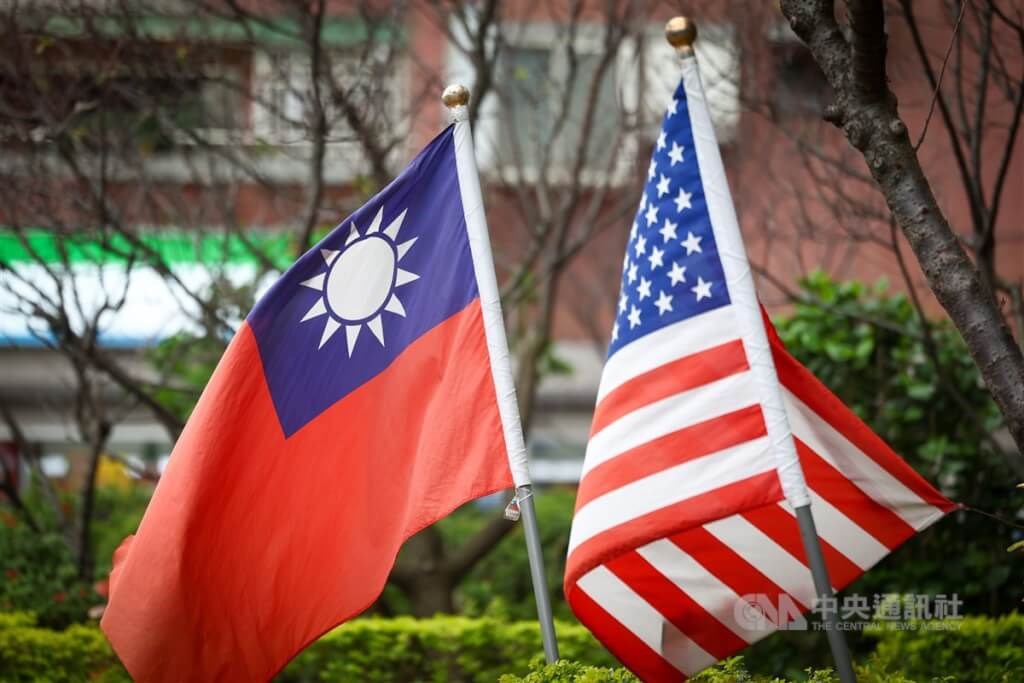Washington, April 7 (CNA) President Lai Ching-te’s (賴清德) recent statement that he is not planning to retaliate against United States President Donald Trump’s 32 percent tariff on Taiwanese goods should be welcomed by Washington, American scholars told CNA on Monday.
But they were also wary of Lai’s aim to conduct tariff negotiations modeled after the USMCA (United States-Mexico-Canada Agreement).
Former U.S. diplomat Robert S. Wang (王曉岷) said Lai’s “conciliatory response” would likely be welcomed by the U.S. administration, “especially in sharp contrast to Beijing’s immediate retaliatory actions.”
“I think Taiwan’s response would likely be brought to the attention of high-level U.S. officials, possibly including President Trump who of course personally met with TSMC CEO [C.C.] Wei (魏哲家) recently,” he told CNA in an email responding to a question on Lai’s decision.
When asked about the possibility of pursuing a USMCA type deal, Wang, who served as senior U.S. official for APEC from 2013 to 2015, said contacts with the U.S. could lead to the beginning of informal talks.
Those talks, however, “would probably only focus on the current tariff issues rather than on a long-term agreement,” said Wang, who is currently a senior associate with the Asia Program at the Washington-based think tank Center for Strategic and International Studies.
“I think that what he [Lai] already said about examining ways to expand U.S. imports [into Taiwan] should be a good way of starting the talks. These could include petroleum and agricultural products that Taiwan needs,” he said.
Commenting on the same issue, Stephen Ezell, vice president of the Global Innovation Policy, Information Technology and Innovation Foundation, told CNA that he also believes the Trump administration would welcome Lai’s decision and begin discussions aimed at reducing tariffs applied between both sides.
“That said, the Trump administration seems to want 10 percent tariffs as a baseline for all incoming imported products to the United States,” he said in an email.
Ezell felt the pursuit of a USMCA-type deal was highly unlikely because it “would be highly complex and time-consuming to complete, something which might be a stretch when U.S. trade agencies are stretched very thin at this time.”
A potential bilateral investment treaty “might be more obtainable,” he said.
Derek Scissors, a senior fellow at the American Enterprise Institute, was more skeptical of any negotiations on the tariffs, given that “the tariff rates are not based on policies other countries pursue.”
“So changing those policies does not naturally lead to a cut in American tariffs. As a result, every country’s offer must be evaluated on an individual basis, which the US Trade Representative is not staffed for,” Scissors said.
On the possibility of free trade deal negotiations, Scissors said: “There is absolutely no chance of a USMCA-like deal between the U.S. and Taiwan. Despite signing USMCA himself, President Trump now denounces it.”
On Sunday, President Lai announced that his government has no plans to retaliate against Trump’s 32 percent tariff set to start on April 9.
“Taiwan has no plans to take retaliatory tariff action in response to the United States’ ‘reciprocal tariffs.’ Investments by Taiwanese companies in the U.S. will also proceed without any changes, as long as they align with our national interests,” Lai said in an 8-minute video.
To mitigate the impact of the tariffs, Lai said his government has formed a negotiation team led by Vice Premier Cheng Li-chiun (鄭麗君) to launch formal talks with the U.S.
“The tariff negotiations can start with a goal of ‘zero tariffs,’ modeled after the USMCA (United States-Mexico-Canada Agreement),” Lai said.
Contrary to Taiwan’s decision, China announced on Friday that it will impose reciprocal 34 percent tariffs on all imports from the U.S. starting April 10 in retaliation after Trump escalated a global trade war.
In response, Trump on Monday said the U.S. will apply an additional 50 percent tariff on imports from China if it does not withdraw its plan to impose a retaliatory 34 percent import duty on American products.
